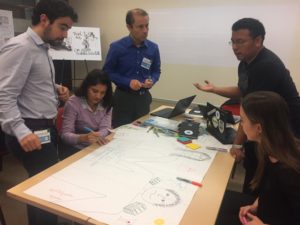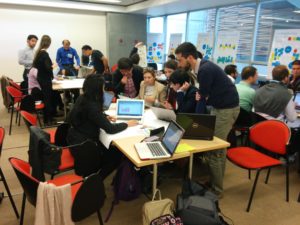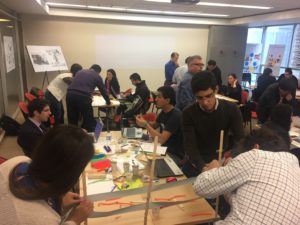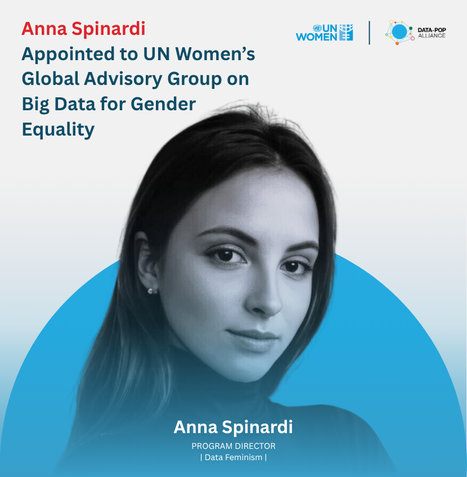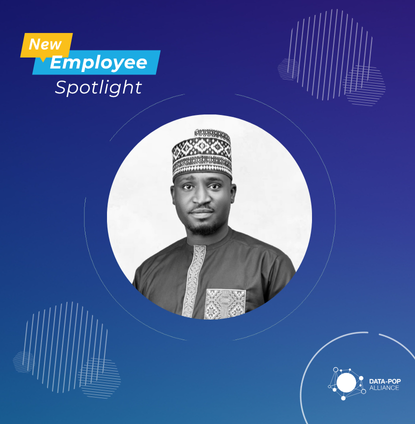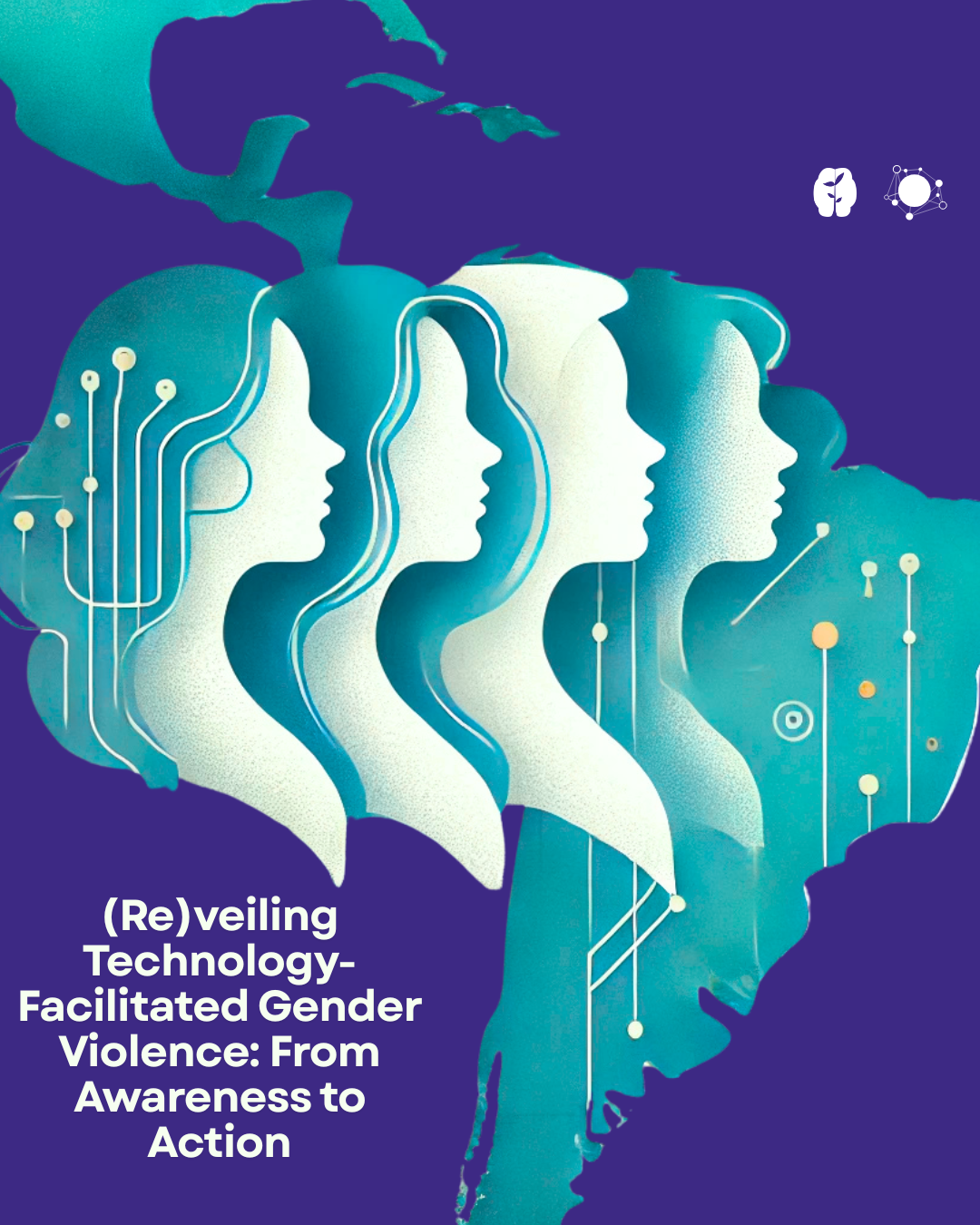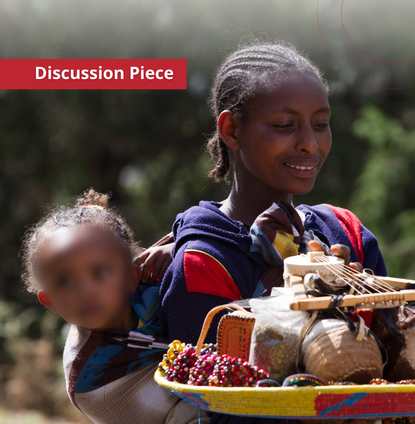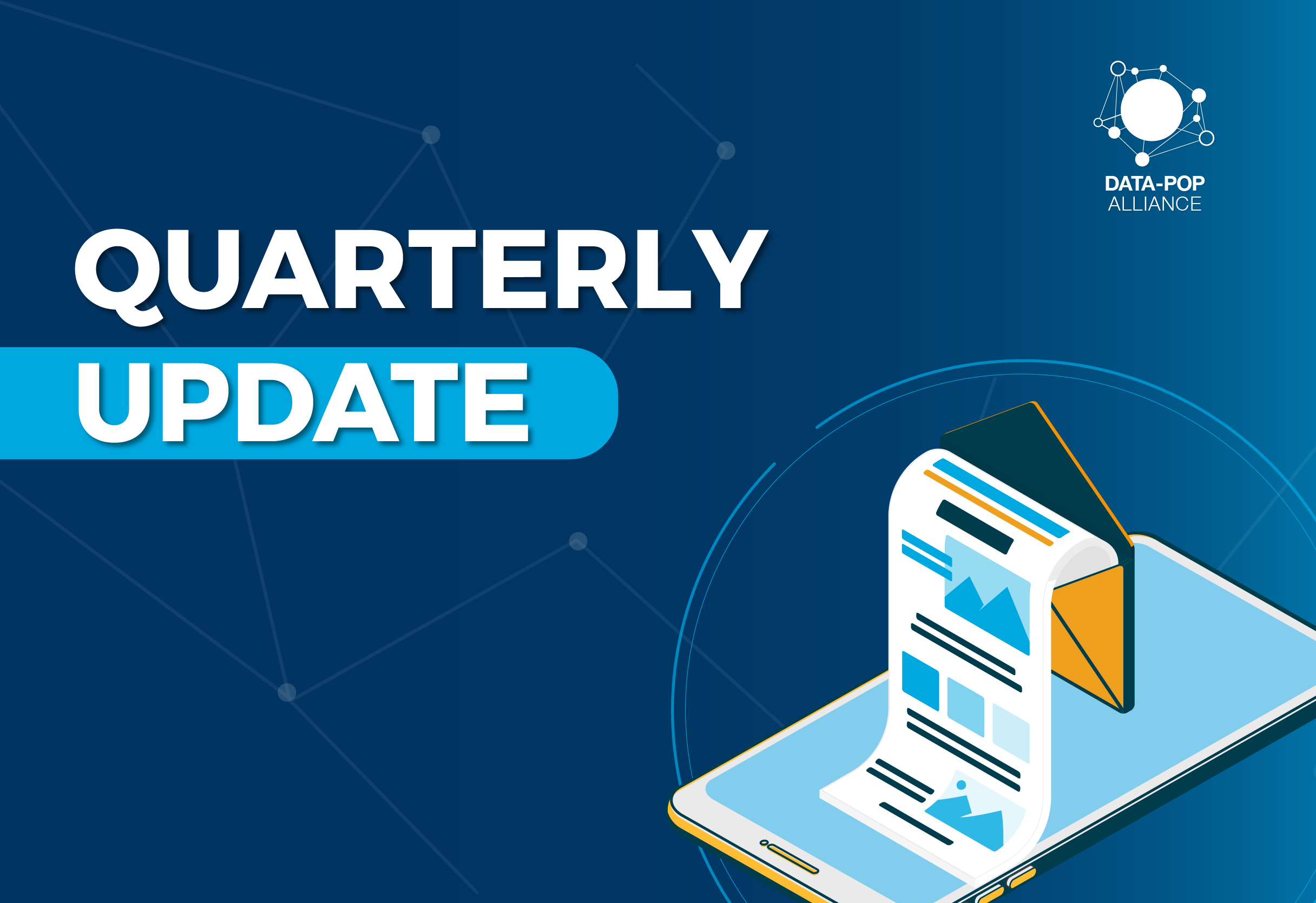Following a pilot event at MIT Media Lab in June, Data-Pop Alliance formally launched its Global Professional Training Program with its first full fledged four-day intensive workshop on “Leveraging Big Data for Sustainable Development” in Bogotá, Colombia, from November 29th to December 2nd. Up to 10 workshops will take place in 2017, in Colombia, Kenya, Rwanda, Senegal, Thailand and the United States (at MIT and New York City); other countries being considered at this time include Chile, Brazil, Mexico and Ethiopia.
The main objective of the program and of each workshop, developed and offered in partnership with the United Nations Systems Staff College (UNSSC), and with financial support from The Hewlett Foundation, is to enhance participants’ “Big Data literacy” by providing them with a deeper understanding, skills, resources, and connections to address the key applications and implications of Big Data in their work related to sustainable development, and as citizens. A key goal of the program, echoing Data-Pop Alliance’s conceptualization of Big Data not merely as ‘big data’ as large datasets but rather as a techno-scientific phenomenon shaped by the 3Cs of Big Data, is to shed light on the political economy and ethical dimensions of Big Data for sustainable development.

This inaugural workshop brought together 36 participants from 19 organizations representing the private and public sectors, civil society, academia, and international organizations. The resulting spectrums of perspectives, interests, experiences and expectations amongst participants contributed to the richness of the sessions and discussions. Some participants were eager to learn to use tools to incorporate Big Data approaches into their organizations, others were keen to turn societal challenges into data question to yield and communicate insights from data; yet others were focused on understanding the political and ethical significance of the phenomenon.
The program was structured around Data-Pop Alliance’s 4 building blocks of ‘Data Literacy’, with Day 1 especially focusing on Concepts and Contexts, Day 2 on Methods and Tools, Day 3 on Design and Storytelling as well as Ethics and Engagement, and Day 4 culminating in a day-long Data Partnership and Project Development Lab where teams formed through the workshop were given time and resources to develop a data-enabled solution to a development problem. Each of the first 3 days used a combination of learning methods and session types, ranging from keynote presentations, instructor-led tutorials, hands-on group-work, case-study pitches, and a data expedition, culminating in a full day of project work in teams.
The workshop was led by 7 Data-Pop Alliance staff members and UNSSC’s training coordinator, Ugo Caruso, with interventions and support from an exceptional group of external speakers and facilitators, including Marco Bressan, Chief Data Scientist of BBVA; Alvaro Ramírez, Business Intelligence Director at Telefónica Colombia; Luisa Fernanda García, expert on personal data protection; Alvaro Riascos, Professor at Los Andes University; as well as Diana Vidal and Iván Mantilla from the National Department of Planning. Patrick Vinck, Assistant Professor at Harvard University and co-Director of Data-Pop Alliance gave a presentation by teleconference on the ethics and politics of Big Data.
Highlights of the event included the initial keynote framing presentation of Big Data and development, an interactive session on data storytelling with support from Rahul Bhargava and Catherine Dignazio (co-creators of datatherapy.org and databasic.io), hands-on technical tutorials on analytical tools, the Data Expedition on Colombia’s peace process, and the Data Partnership and Project Development Lab on Day 4.
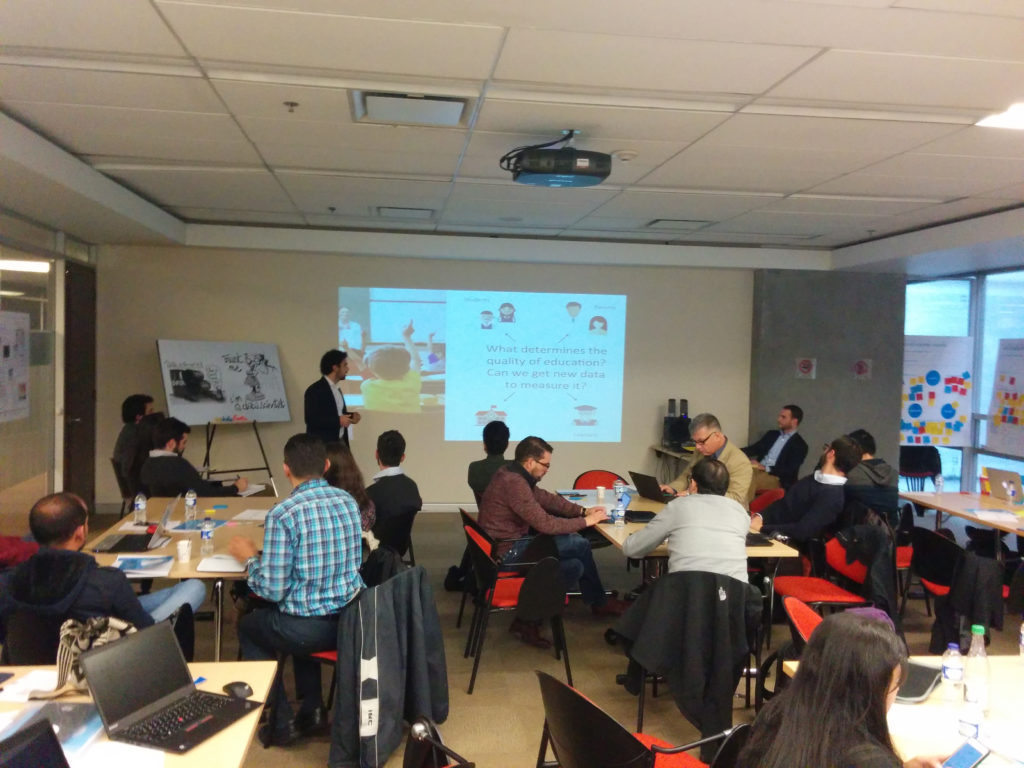
The objective of the 5-hour Data Expedition of Day 2, organized in partnership with our partner Fundación Ideas para la Paz, was to better understand the drivers and dynamics of the October 2nd peace referendum in Colombia through sentiment analysis, using a dataset of over 1 million related tweets and other open datasets on reported instances of violence and previous electoral results. The Data Expedition was concluded with the presentations of 5 groups. They used different analytical tools like R, Stata, Python and ArcGIS. Most of the teams analyzed the correlation between the number of victims per town and the results of the referendum, or the positive and negative sentiments using the tweets that mentioned the referendum. Other interesting analyses included a look at the changes in sentiments on the day after the referendum and the effect of money transfers from the national government to the municipalities on the results of the referendum.
Similarly, during the Project Development Lab of Day 4, participants worked in groups to put to use the tools and techniques presented over the previous days to develop a blueprint for a collaborative Big Data project. The development challenges chosen by participants covered a wide range of topics including the effect of corruption in education quality in Colombia, empowering displaced populations – specifically women – to enter the formal economy, development of digital apps to monitor school performance, improving quality of health and education, encouraging more balanced rural and urban development, and sustainable mobility solutions for better quality of life of citizens.
Day 3 ended with Happy Hour Chat in a nearby restaurant with presentations on the implications of Big Data for the global development agenda and the implementation of the SDGs from Diana Nova, Coordinator of the SDG Working Group at DANE and Daniel Rodríguez, Institutional Partnerships Coordinator at CEPEI, as well as mini-burgers and drinks, which were greatly enjoyed by all.
The Data-Pop Alliance team thanks all the participants for their hard work during the workshop and for bringing their enthusiasm, experience, dedication and good spirit to all of the sessions and activities. We also express our heartfelt gratitude to all of our speakers, who made this a memorable and meaningful experience. We would also like to thank the UNSSC and Ugo Caruso for his tireless support, the Hewlett Foundation for its financial support, and The Bogotá Chamber of Commerce for graciously hosting the event in its modern space.
In the next few weeks, we will be reviewing the detailed feedback received from all participants as we prepare the next workshop to take place at MIT Media Lab from March 27th to 31st, so as to keep improving the experience and take-away for all future participants. More information will be available on our site ahead of this next event.

